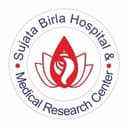Bachelor of Vocational (BVoc) in Radiology Technician
OR
Prepared by Docthub Courses Team ∣
Last updated on 05 Aug 2024
Overview
The Bachelor of Vocational (B.Voc) in Radiology Technician is a specialized undergraduate program designed to train students in the field of radiology and imaging technology.
This course equips students with the necessary skills and knowledge to work as radiology technicians in healthcare settings, diagnostic centers, and imaging facilities.
The program focuses on imparting practical and theoretical knowledge in radiology, imaging techniques, patient care, and equipment operation. It aims to produce competent professionals capable of performing diagnostic imaging procedures.

Table of Content
Highlights:
| Details | Bachelor of Vocational (B.Voc) in Radiology Technician |
| Level | Bachelor’s degree |
| Duration | 3 Years |
| Exam Type | Semester-wise |
| Course Fees | INR 10,000 - 1 Lakh |
| Min. Qualification Requirement | 10+2 in the science stream with physics, chemistry, and biology. |
| Average Salary | INR 3.5-6 Lakhs |
| Selection Process | Entrance Exam/Merit-based |
| Min. Aggregate Score | 50% or more in 10+2 in science stream |
Full Form
B.Voc in Radiology Technician stands for Bachelor of Vocational (B.Voc) in Radiology Technician.
Eligibility
The eligibility criteria for the Bachelor of Vocational (B.Voc) in Radiology Technician program explains that candidates should have completed their 10+2 education in the Science stream with Physics, Chemistry, and Biology as main subjects.
Duration
The duration of the Bachelor of Vocational (B.Voc) in Radiology Technician in India is typically three years, divided into six semesters. Each semester usually lasts for six months.
Fees
The Bachelor of Vocational in Radiology Technician in India fees can vary depending on the institute and location. However, the average fee for the course ranges from INR 10,000 to 1 lakh.
Who Should Do This Course?
Individuals with the following characteristics and interests are a good fit for the B.Voc in Radiology Technician program:
- Strong foundation in science subjects: A basic understanding of physics, chemistry, and biology is beneficial for grasping the principles of radiation and medical imaging.
- Good math skills: The program involves calculations for dosage, exposure times, and other technical aspects.
- Those seeking challenging and rewarding careers: The field offers continuous learning opportunities and the satisfaction of playing a vital role in healthcare.
- Tech-savvy individuals: Enjoying working with advanced technology and exploring its applications in medicine.
- People seeking job security and good salary: Radiology technicians are in high demand, offering excellent employment opportunities and competitive salaries.
Why Study This Course?
Individuals should consider pursuing a Bachelor of Vocational (B.Voc) in Radiology Technician due to several compelling reasons:
- Career Opportunities: Graduates of this program have opportunities to work in hospitals, diagnostic centers, clinics, and other healthcare facilities. The demand for skilled radiology technicians is expected to grow, providing good career prospects.
- Contribution to Healthcare: Radiology technicians play a crucial role in patient care by performing diagnostic imaging procedures that aid in the diagnosis and treatment of various medical conditions.
- Technology and Medicine Fusion: The course allows students to be part of a field that combines technology and medicine, offering a dynamic and evolving work environment.
- Patient Interaction: It provides the opportunity for direct interaction with patients, contributing to their overall care and well-being.
- Industry Relevance: The curriculum is designed to be industry-relevant, ensuring that graduates are equipped with the necessary skills and knowledge required in the field of radiology and medical imaging.
Admission Process
The Bachelor of Vocational in Radiology Technician in India admission process varies from college to college, but the general steps are as follows:
Application:
- Candidates can apply online or offline through the college website or admission portal.
- The application form typically requires basic information like name, address, contact details, academic qualifications, and entrance exam scores.
- Some colleges may also require additional documents like a medical certificate, character certificate, and passport-size photographs.
Entrance Exam:
- Some colleges conduct their entrance exams for Bachelor of Vocational (B.Voc) in Radiology Technician.
- These exams typically test the candidate's science, mathematics, and general aptitude knowledge.
- The format of the entrance exam may vary depending on the college.
Merit List:
- Colleges prepare a merit list based on the candidate's performance in the entrance exam and academic qualifications.
- Shortlisted candidates are called for counseling and document verification.
Counseling:
- Shortlisted candidates attend counseling sessions where they are informed about the course, fees, and career opportunities.
- They also get the chance to clear any doubts they may have about the program.
Admission:
- After counseling, eligible candidates are offered admission to the program.
- They must submit all required documents and pay the fees to confirm their seat.
Entrance Exam
Some institutes may conduct entrance exams for admission to the Bachelor of Vocational (B.Voc) in Radiology Technician program.
These entrance exams assess the candidate's knowledge and aptitude in relevant subjects.
| Entrance Exams | Body Conducting Entrance Exams |
| National Institutes of Technology (NITEE) Entrance Exams | National Institute of Technology |
| Common University Entrance Test (CUET) | National Testing Agency (NTA) |
| Paramedical and Allied Health Sciences Entrance Test (PAHSET) | Tamil Nadu State Level Exam |
| Karnataka Common Entrance Test (KCET) | Karnataka State level Exam |
Syllabus
The Bachelor of Vocational (B.Voc) in Radiology Technician syllabus covers a range of subjects, including:
| Year/Semester | Courses |
| YEAR 1 Semester I and II | Anatomy and Physiology Medical Terminology Basics of Radiology Patient Care and Communication Radiographic Procedures (Theory and Practical) |
Radiographic Imaging Techniques Radiation Physics and Protection Medical Ethics and Legal Issues Imaging Equipment Operation Clinical Practice | |
| YEAR 2 Semester III and IV | Pathology and Disease Processes Radiographic Positioning Digital Imaging Technology Pharmacology for Radiographers Clinical Internship |
Advanced Imaging Modalities Quality Assurance in Radiology Radiographic Pathology Research Methodology Clinical Internship and Case Studies | |
| YEAR 3 Semester V and VI | Advanced Radiographic Procedures Radiographic Pathophysiology Radiation Biology Professional Development and Ethics Clinical Internship and Specialization |
Radiography Management and Administration Radiation Safety and Regulations Image Evaluation and Critique Professional Practice and Patient Management Internship and Project Work |
Top Private Colleges
Some top private Bachelor of Vocational in Radiology Technician colleges in India include:
- Manipal University, Manipal
- SRM Institute of Science and Technology, Chennai
- Amity University, Noida
- Vellore Institute of Technology (VIT), Vellore
- Symbiosis International University, Pune
- Christian Medical College (CMC), Vellore
- Lovely Professional University, Jalandhar
- Kasturba Medical College, Manipal
- CHRIST (Deemed to be University), Bangalore
- Maharishi Markandeshwar University, Ambala
Top Govt Colleges
Some top government Bachelor of Vocational in Radiology Technician colleges in India include:
- All India Institute of Medical Sciences (AIIMS), New Delhi
- Jawaharlal Institute of Postgraduate Medical Education and Research (JIPMER), Puducherry
- Post Graduate Institute of Medical Education and Research (PGIMER), Chandigarh
- King George's Medical University (KGMU), Lucknow
- Grant Medical College, Mumbai
- Government Medical College and Hospital (GMCH), Chandigarh
- Madras Medical College, Chennai
- Bangalore Medical College and Research Institute (BMCRI), Bangalore
- Osmania Medical College, Hyderabad
- Government Medical College, Thiruvananthapuram
Scope
Bachelor of Vocational in radiology technician jobs include working in various sectors such as:
Specialization in specific areas like interventional radiology, cardiac imaging, or radiation oncology.
Continuous Learning and Development by attending workshops, and conferences, and pursuing further education
Further Study Options
Following the Bachelor of Vocational (B.Voc) in Radiology Technician program, students have the option of pursuing further education in fields like:
- Master of Science (M.Sc.) in Medical Imaging Technology
- Master of Science (M.Sc.) in Radiology
- Master of Business Administration (MBA) in Healthcare
Career Opportunities After This Course
Graduates of Bachelor of Vocational in radiology technician in India can explore various career opportunities such as:
- Radiology Technician
- X-ray Technician
- CT Scan Technician
- MRI Technician
- Ultrasound Technician
Salary
Radiology Technicians earn competitive salaries, with the average annual Bachelor of Vocational in radiology technician salary in India ranging between ₹3.5 lakhs and ₹6 lakhs depending on experience, location, and specialization.
Many healthcare institutions offer attractive benefits packages like health insurance, retirement plans, and paid time off.
Explore colleges for this course
Quick Go Links

Explore this course by location..
by States
Related Job Roles
Related Job Vacancies
View All 164 Jobs

FAQS
What is the difference between B.Sc. Radiology and B.Voc Radiology?
B.Sc Radiology is a traditional academic degree program that focuses on theoretical knowledge and scientific principles in radiology, while B.Voc Radiology is a vocational program that emphasizes practical skills and hands-on training in radiology and medical imaging technology.
What are the career prospects for B.Voc. Radiology Technician graduates?
B.Voc Radiology Technician graduates have career opportunities as radiology technicians, MRI technologists, CT technologists, mammography technologists, and in roles related to medical imaging, clinical research, healthcare administration, and quality control within healthcare facilities.
What is a Bachelor of Vocational in Radiology Technician (B.Voc. Radiology Technician)?
B.Voc Radiology Technician is a specialized undergraduate program that trains individuals in radiology and medical imaging technology, focusing on practical skills and industry-relevant training to prepare students for careers as radiology technicians and allied roles in healthcare.
What are the benefits of pursuing a B.Voc. in Radiology Technician?
The benefits include practical exposure to imaging equipment, emphasis on patient care and safety, industry-relevant curriculum, opportunities for direct patient interaction, specialized training in radiology and medical imaging technology, and preparation for immediate entry into the workforce.
What are the eligibility criteria for a B.Voc. in Radiology Technician program?
The typical eligibility criteria include completion of 10+2 education in the science stream with a minimum aggregate score. Some institutions may have specific subject requirements, and candidates are advised to check with individual colleges for accurate eligibility criteria.
Related Course titles

Qualifications
12th Science PCB
Related Specialty
Interventional Radiology
Biomedical Imaging






